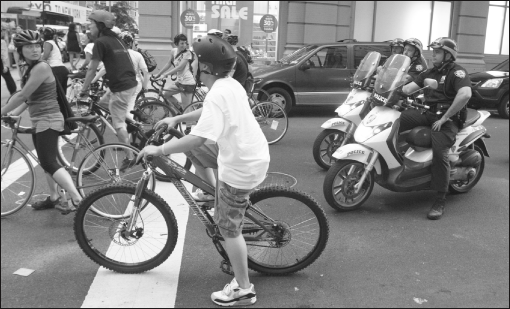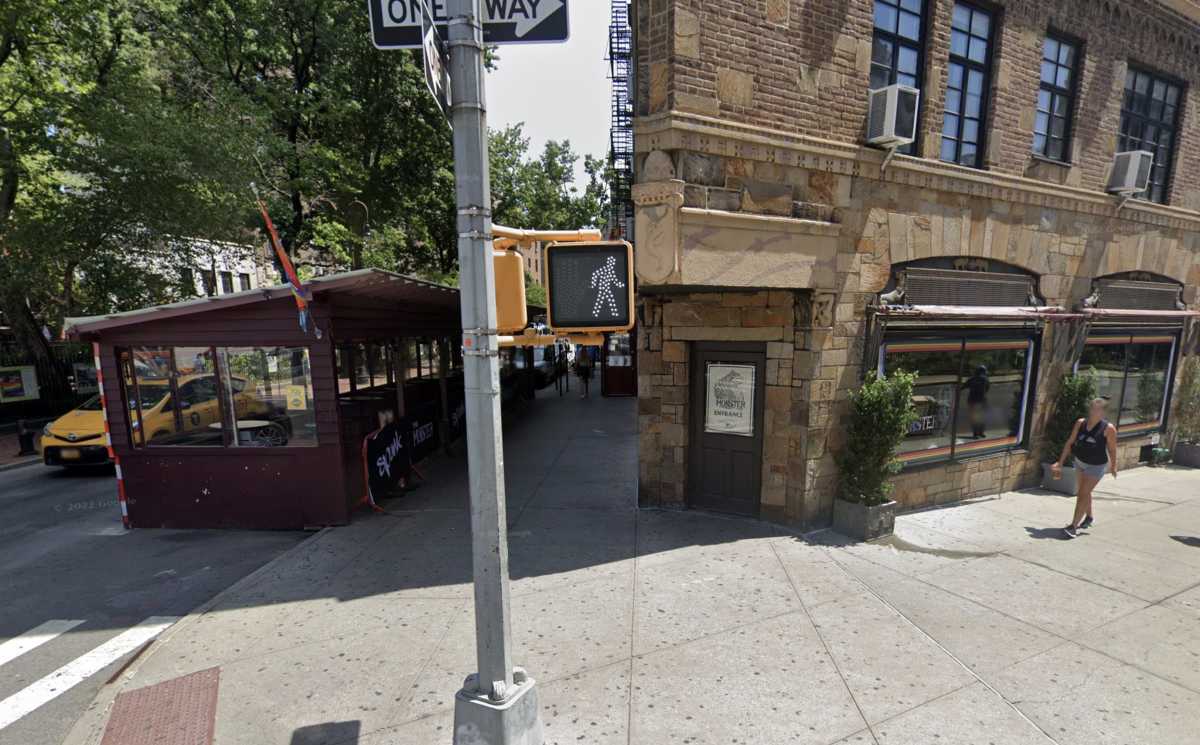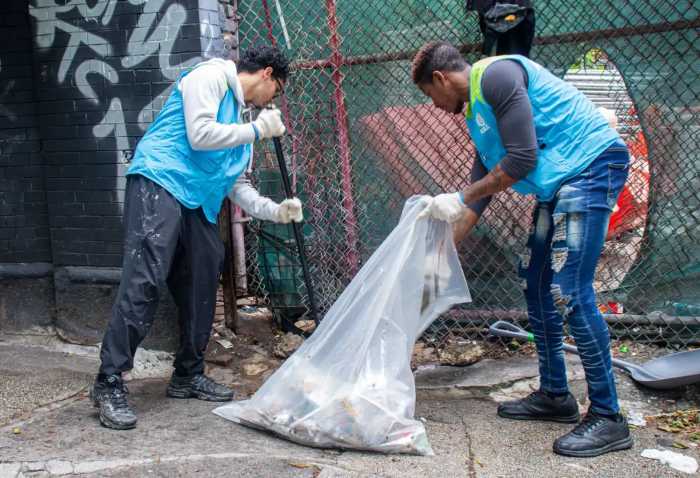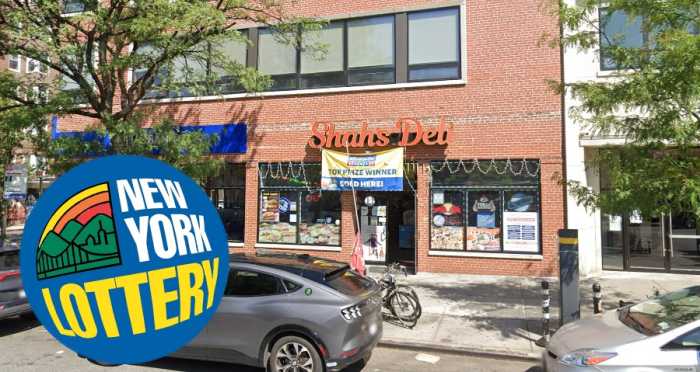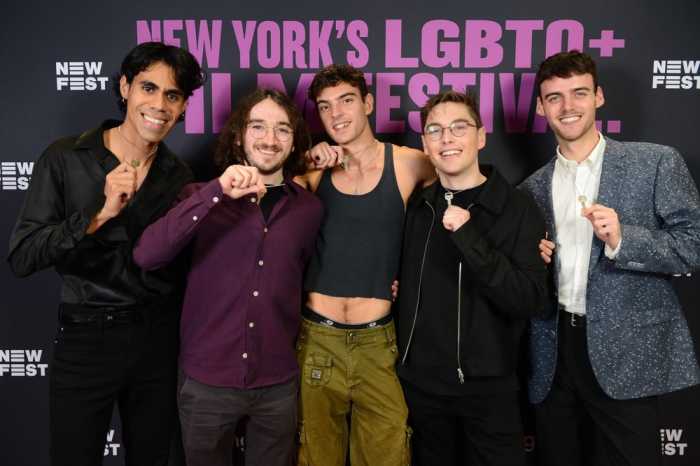By Jefferson Siegel
For the 10 years of Critical Mass in New York City, the police paid scant attention to the monthly bike ride. That changed with the Republican National Convention in August 2004, when hundreds of cyclists were among the 1,800 arrested that week.
In the years since the R.N.C., the ride’s Union Square starting point has often resembled a military zone, with the cyclists surrounded by police. When the riders would depart from the square they were chased by helicopters and hundreds have since been arrested and ticketed.
Earlier this month, as the third anniversary of the convention approached, a police officer who has been present at many recent Critical Mass rides agreed to give an interview about his thoughts on policing Critical Mass and the event, in general.
Q. It’s the last Friday of the month and that evening is Critical Mass. What’s going through your mind?
A. Generally speaking, we know it’s going to be a night with a lot of confrontations, somebody’s going to be unhappy, there’s going to be some form of enforcement action. In the beginning it was arrests that were done, and that was when Critical Mass decided to make itself a problem in the eyes of the department, before the R.N.C., especially.
We’re expecting we’re going to arrive and that there’s going to be the usual epithets, “police state” shouts and chants and that we’re all nazis, so we kind of brace ourselves mentally for that.
Q. For several years after the convention, a lot of riders worried that, with the police chasing the ride, somebody might get hurt. In January 2006, those two officers collided on Third Ave. and 13th St. while chasing the ride.
A. That falls into kind of a tough spot. You don’t want to go chasing the bicyclists unnecessarily. However, if you request a bicyclist to stop and they refuse and you let them go and you ask another bicyclist to stop and he refuses and everybody sees, “You know what, the cops aren’t going to chase us at all, we’ll just take off and we’ll never get a ticket, we’ll never get stopped,” that sets up a more dangerous confrontation.
It’s give or take. The bicyclists have got to understand that you’re requested to stop, you’re going to have to stop. You are permitted to pursue up to a point, but not for miles and miles.
Q. Before that collision the bicyclists were being arrested and after that there were more tickets being issued and fewer arrests. Is that accurate?
A. Yes. That came about from the department’s change in policy from arresting to going to traffic enforcement summonses. The department found, in general, that because there were constitutional issues involved with arresting people on a statute that was loosely interpreted, that “parading without a permit” statute, that we were losing those cases.
Q. What do you think of the Critical Mass bicyclists?
A. I look at them as idealists. They want to have their quote “freedom of speech, First Amendment rights,” but I would speculate a lot of them are also very much in favor of gun control, which is another Bill of Rights guarantee. You can’t cherry-pick which ones you do want and which ones you don’t.
The same people are saying, freedom of assembly, freedom to do whatever they want, period, regardless. It doesn’t fly. We have the gun control laws in New York City for a specific reason, for public safety. We have, even though I don’t particularly agree with how it’s set up, the “parading without a permit” laws along the same lines. You can’t have 5,000 cyclists riding up and around Sixth Ave., Broadway, tying up the streets. Even if you do things exactly right, it takes time for all those people to pass through an intersection. That creates a problem. To say that it shouldn’t be much of a problem if there were fewer cars doesn’t fly.
Q. Bicyclists have claimed that they’re not blocking traffic, they are traffic.
A. They are traffic. However, when the [traffic] light cycle goes against them, now they’re passing through a steady red light, which was the rule in the past, that somebody would hold traffic and then the several hundred riders behind them, so as not to break up the Mass, which was the whole point of the ride. Now you’ve got this large group passing through a red light basically doing traffic infractions. It just turns into chaos.
Q. Do you think the city’s doing enough for bicyclists?
A. They’re starting to. It’s been a long time coming. I’ve seen bicycle lanes cropping up where there were none before. I think that’s a good move.
Q. What do you think about bicycling, in general?
A. I have no problem with it. If they want to get around on a bicycle, that’s fine. But don’t try and force what you want on what somebody doesn’t necessarily want to do, or isn’t able to do. I’ve seen some pretty serious bicycle accidents. Nobody’s innocent. No bicyclist is innocent, no cop is 100 percent innocent. We do what we have to do. Supervision tells us, we’re going to enforce Critical Mass, this is what we’re going to enforce. We deal with what is written on the books. The “parade without a permit” law currently is written law. Until it gets overturned by the court, then we have to obey that.
Q. The bicyclists have said that it’s easier for the bicyclists to scatter and make room for an emergency vehicle as opposed to cars in gridlock.
A. To a point. I’ve seen instances where emergency vehicles have been stuck behind a huge group of Critical Massers, where the people in front, two, three blocks ahead, can’t hear the siren until the vehicle is on top of them. With the route known to the department, we can reroute emergency vehicles.
Q. Do you follow any of the Web sites?
A. Oh sure, mostly out of curiosity. I follow several of the sites to see what’s going on with Critical Mass in other cities, like San Francisco, and some of the European sites, Berlin, Warsaw.
Q. Any of the local Web sites?
A. I see a lot of postings about the nazi cops, the police state, a lot of postings along those lines.
Q. Do you think all the bicyclists feel that way about you?
A. Not all of them. A lot of them do, I’m sure. Especially now that we’ve enforced it so hard over the last 12 months that the normal ride turnout is only a couple of hundred. I think they’re the most die-hard of the group. Just because I’m wearing a uniform, to look at me and say I’m a nazi and I don’t support the First Amendment is a laugh. They don’t know who I am. I’m doing my job. Believe it or not, it’s helping them maintain their First Amendment rights, their ability to do this.
Q. Are you familiar with the Time’s Up! group? They claim to be, not organizing, but promoting an environmentally beneficial mode of transportation.
A. More power to ’em. But again, they deny everything to do with Critical Mass. We’ve removed fliers with Critical Mass and underneath it you have the “X” with the up arrow [Time’s Up!’s symbol]. O.K., we know what they’re associated with. That’s fine, I have no problem with cycling as an alternative means of transportation.
Q. Any advice for the bicyclists in Critical Mass?
A. Somebody, just once, get the permit — it’s only $45 — and do an organized ride. Get as many people as you possibly can, 10,000 bicyclists, for the ride. But get the permit first, and watch what happens. You’ll get to ride your route, they’ll get any route they want, short of riding on the F.D.R. Drive or the West Side Highway. There’ll be a detail of officers to hold traffic. They will ride unencumbered, unhindered, unsummonsed and unchallenged. Just like the St. Patrick’s Day Parade, the Puerto Rican Day Parade or any other parade.
There’ll be no issues. There’ll be no problems. And even if they don’t get the entire street to themselves, they will have at least two lanes reserved for them. Maybe they’ll be escorted by mobile officers or foot officers, but they will get to ride their route. They’ll get to do pretty much what they want to do.
Have them do it by the Police Department’s rules just once and if it’s not to their taste, fine, you’re out $45.
You have the right to freedom of speech, no problem. But you can’t do it at the expense of the day-to-day business or the liberties of the other people who are in the city. The Critical Massers aren’t the only ones who are here.



